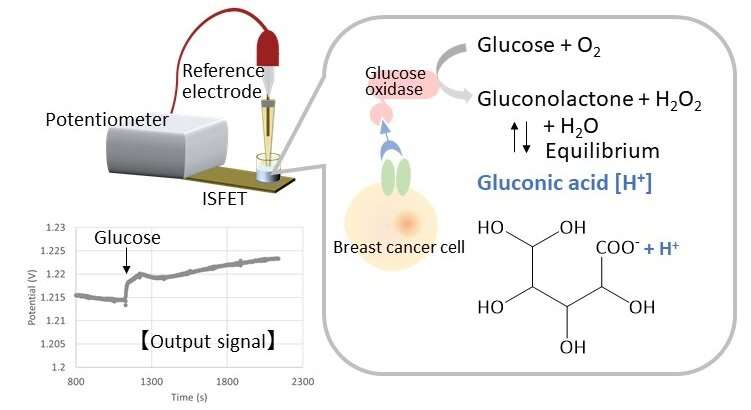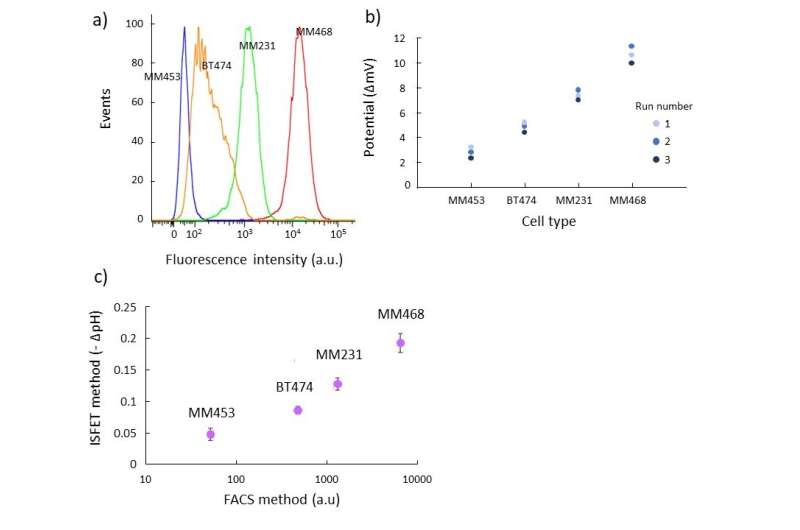Transistors help identify cancer cell markers

Having biopsies taken and endless tests run is nobody's idea of a good time, even if it's necessary for monitoring your health. Now, researchers from Japan report the development of a new technique that could make testing for cancer a lot less invasive.
In a study published in September in the Journal of the American Chemical Society, researchers from Tokyo Medical and Dental University (TMDU) have revealed a new technique for assessing the cancer-related marker using breast cancer cell lines.
Detecting cancer-related markers is a powerful way to determine diagnosis, prognosis, and treatment success. Modern techniques are capable of detecting these markers in patient samples such as blood and urine, which provides a noninvasive way to monitor and evaluate patients.
"Circulating tumor cells (CTCs), which are cancer cells found in the blood, are one of the main targets used to evaluate cancer patients' blood samples," states Miyuki Tabata, first author of the study. "However, it can be challenging to isolate these cells from the blood, and current approaches do not adequately detect both epithelial cell and mesenchymal cell markers, which are important for determining the stage of the cancer."
To create a system that can quickly and easily detect cancer-related markers on CTCs (and potentially other factors in the blood), the researchers used an apparatus called an ion-sensitive field effect transistor (ISFET), which is a tiny electrical circuit that is activated by a change in pH. They coated these transistors with breast cancer cells and then added an antibody linked to a chemical reporter that causes a change in pH if the antibody recognizes the cells.

"We found that the chemical reporter glucose oxidase successfully detected the expression of epidermal growth factor receptor (EGFR), a marker of poor cancer prognosis, on CTC membranes," says Yuji Miyahara, senior author of the study. "Furthermore, the strength of the chemical signal correlated with the amount of EGFR expressed by the cells."
Importantly, these results corresponded to the levels of EGFR detected using other techniques, indicating that the ISFET approach accurately identifies cancer-related marker expression on cells.
"These results provide proof of concept that an ISFET-based system can be used to efficiently assess patient cancer status based on liquid biopsy samples," states Tabata.
Given that ISFETs can be manufactured to be the size of a single cell and assembled into vast arrays, this technique has the potential to enable high-throughput analysis of cancer cells at single-cell resolution. In addition, the use of multiple antibodies for the chemical enzyme detection step could enable the simultaneous analysis of multiple cancer-related markers.
More information: Miyuki Tabata et al, Detection of Epidermal Growth Factor Receptor Expression in Breast Cancer Cell Lines Using an Ion-Sensitive Field-Effect Transistor in Combination with Enzymatic Chemical Signal Amplification, Journal of the American Chemical Society (2022). DOI: 10.1021/jacs.2c06122


















